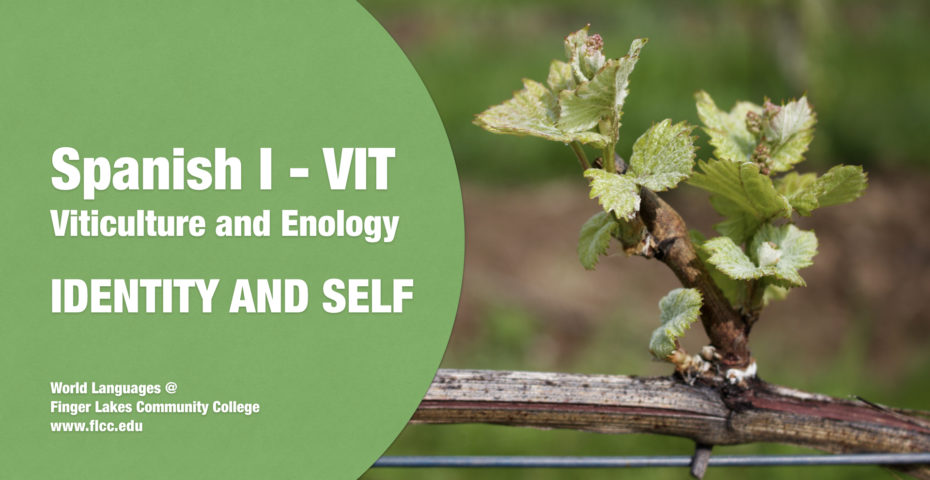Spanish for Viticulture and Enology @ FLCC – Course Outline (v.4)
Spanish for Viticulture and Enology @ FLCC (v.4) is designed for students with no previous experience with the Spanish language. The course is designed with six Learning Modules, with specific learning outcomes (goals) for each Module. Mastery of each Learning Module is generally dependent upon content mastery of the previous Module, and content can be mixed and matched appropriately. All lessons and tools provided by LEAF are accessible under the Creative Commons license
…
Course Objectives Video Incoming!
…
Course Objectives and Resources |
| Identity and Self
Spanish VIT @ FLCC – “Identity and Self” will help you express ideas and concepts about yourself and your immediate sphere of influence including family, friends, possessions, and nearby places. You will secure an identity and a sense of self in the Spanish-speaking world. |
…
Module 1 |
| “You never get a second chance to make a first impression.” – Harlan Hogan |
|
Students will demonstrate context-appropriate reading, writing, listening, and speaking skills by …
Students will demonstrate context-appropriate critical thinking and information management skills by …
|
|
…
Module 2 |
| “To remember where you come from is part of where you are going.” – Anthony Burgess |
|
Students will demonstrate context-appropriate reading, writing, listening, and speaking skills by …
Students will demonstrate context-appropriate critical thinking and information management skills by …
|
|
…
Module 3 |
| “Age is an issue of mind over matter. If you don’t mind, it doesn’t matter.” – Mark Twain |
|
Students will demonstrate context-appropriate reading, writing, listening, and speaking skills by …
Students will demonstrate context-appropriate critical thinking and information management skills by …
|
|
…
Module 4 |
| “Spring is the time of year when it is summer in the sun and winter in the shade.” – Charles Dickens |
|
Students will demonstrate context-appropriate reading, writing, listening, and speaking skills by …
Students will demonstrate context-appropriate critical thinking and information management skills by …
|
|
…
Module 5 |
| “Better three hours too soon than a minute too late.” – William Shakespeare |
|
Students will demonstrate context-appropriate reading, writing, listening, and speaking skills by …
Students will demonstrate context-appropriate critical thinking and information management skills by …
|
|
…
Module 6 |
| “The more that you learn, the more places you’ll go.” – Dr. Seuss |
|
Students will demonstrate context-appropriate reading, writing, listening, and speaking skills by …
Students will demonstrate context-appropriate critical thinking and information management skills by …
|
|

